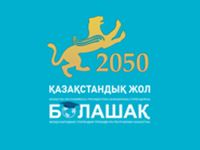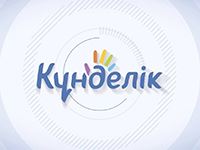Starting the school!

In spite of the fact that academic year begins on September 1, on the definition of the child in school care cost in advance. Children who have reached the age of seven and children who are six years old in the current calendar year can start school in general education organizations of the Republic of Kazakhstan, i.e. children born in September-December can go to the first grade, because until the end of the calendar year they will reach the age of full six years and have the right to be accepted into school.
According to Standard Regulations of admission in the organizations of education realizing educational training programs of primary, basic secondary, general secondary education, reception of statements from parents or legal representatives of the children arriving in the first grade, proceeds from June 1 to August 30 of the current year.
Also, according to the Model Rules, recruitment of classes according to the level of training and the degree of development of students is not allowed, and the maximum number of students in one class should be no more than 25 students.
Parents or other legal representatives of the child have the right to choose any educational organization for training.
Primary education organizations provide admission to the first grade of all children who reach the age of seven and children who will reach six years old in the current calendar year living on the territory of educational organization service despite of preparatopn level.
The following documents are necessary for reception of children in the first class:
- the statement from parents (or the persons replacing them);
- copy of the birth certificate of the child;
- certificate of a state of health (the medical passport);
- two photos of 3 cm by 4 cm.
At reception of children in the first class the management of educational institution has to acquaint applicants and their parents with rules of admission, the regulation and other documents governing the organization of educational process.
For admission to the first grade, examinations, testing, offsets, competitions are not held. For children who did not attend preschool and pre-primary education is not passed before the start of the school year, training courses will be organized. Pre-primary education is obligatory. It covers all the kids who go to the first class. It can be preschool classes, preparatory instruction in kindergarten or short-term courses
Competitive selection of children without residence, is provided in schools enrollment of the so-called raised type - gymnasiums and lyceums. With this selection the child usually is interviewed, indicating his readiness to the educational process. Interview is conducted by a commission composed of primary school teachers, psychologists and social workers.
Source: egov.kz
Is it allowed to wear hijab in schools?

Recently, there are often situations where parents of schoolchildren, not observing or not knowing the rules, send their children to school in religious clothes. This, of course, causes resentment both among teachers and parents of other children. Let's consider this issue in more detail and answer the most frequently asked questions of citizens regarding this topic.
Requirements for the school uniform prohibit the wearing of the hijab, since any attribute, symbol, element in one way or another implies propaganda of the dogma to which they relate. Ensuring the equality of all religions before the law, the principles of secularism do not allow the advantage of any religion.
The ban on wearing a hijab in the school was introduced only in order to preserve the internal order of the school in accordance with the principles of secularism. Outside the school bans on this issue do not apply.
The very expression "observance of the school uniform" implies "the non-use of any attributes and elements". And this means banning not only the wearing of religious attributes, but also any other. For example, a child can not come to school in free, holiday or sport clothes, in clothes with bright and splashy ornamentations. The concept of "uniform" regulates all these relations.
What regulatory legal acts establish a ban on wearing religious clothing in educational organizations?
The appearance of students in secondary education organizations is regulated by the Rules of Internal Regulations of Educational Organizations, the Charter of the Organization of Education, and the Requirements for Compulsory School Uniform for Secondary Education Organizations, which establish that the compulsory school uniform of secondary education organizations corresponds to the secular nature of education, the style, the color of the school uniform are kept in the classical style, in a single color scheme, with the admittance of mixing no more than three colors. The color of the school uniform is chosen from quiet and not provoking, bright tones.
The school uniform for boys includes a jacket, a vest, trousers, a dress shirt, an everyday shirt (winter period: knitted vest, turtleneck). Pants for boys are of free cut, and along the length cover the ankles.
The school uniform for girls includes a jacket, vest, skirt, trousers, a classic blouse (winter period: knitted vest, sarafan, turtleneck). Pants for girls are free cut, and along the length of the ankles are closed.
The inclusion of elements of religious clothing belonging to various denominations in the school uniform is not allowed
Is there a prohibition on wearing a hijab in the Charter of an educational institution?
According to Art. 41 of the Law of the RK "On Education" the Charter of the Organization of Education, in addition to the requirements provided for by the civil legislation of the Republic of Kazakhstan, should contain:
-
the order of the organization of the educational process of education and upbringing, curriculum
-
the procedure for formalizing the relations between the organization of education and students, pupils and (or) their parents and other legal representatives
The Charter of the Organization of Education may contain other provisions relating to its activities and not inconsistent with the legislation of the Republic of Kazakhstan.
In connection with the foregoing, the Charter of the educational institution should include requirements that exclude the wearing of religious clothing (hijab, scarf, etc.).
What will the educational institution do if the child comes to school wearing a hijab?
The measures taken by the education organization in cases of violations of school discipline and order are regulated by the Standard Rules for the Activity of Educational Organizations, the Charter of the Organization of Education and the Rules of Internal Regulations.
What is the responsibility of parents in case of non-compliance with the requirements for school uniform?
In accordance with paragraph 7 of Article 3 of the Law "On Religious Activity and Religious Associations" no one has the right to refuse to fulfill the duties provided for by the Constitution and laws of the Republic of Kazakhstan on grounds of his religious beliefs.
In accordance with subparagraphs 3, 6 and 7 of paragraph 2 of Article 49 of the Law of the Republic of Kazakhstan "On Education" parents and other legal representatives are obliged to comply with the rules defined by the Charter of the education organization, the requirements for compulsory school uniform established by the authorized body in the field of education and comply with the form of clothing, established in the organization of education. In accordance with the current legislation of the Republic of Kazakhstan, in respect of parents whose children do not comply with the school uniform, administrative punishment may be applied.
Failure to fulfill or improper performance of duties stipulated by the legislation of the Republic of Kazakhstan in the field of education, by parents or other legal representatives entails a fine of 10 MCI.
Can a teacher wear a hijab in school?
The state system of education and upbringing in the republic is separated from religious associations and is secular.
Considering that the educator is primarily a carrier of secular education, he/she must adhere to the norms and rules established in the organization of secondary education for students.
According to paragraph 5 of Article 51 of the Law of the Republic of Kazakhstan "On Education" pedagogical workers are prohibited from using the educational process for the purposes of political agitation, religious propaganda or for inducing students to take actions contrary to the Constitution of the Republic of Kazakhstan and the legislation of the Republic of Kazakhstan.
In accordance with the current legislation in the field of education for violation of duties and committing an offense that discredits the knowledge of a pedagogical worker, a pedagogical worker may be prosecuted by the Republic of Kazakhstan.
Does the ban on wearing hijab apply to private schools?
Requirements for compulsory school uniform for secondary education organizations apply to all general education institutions, regardless of the form of ownership and departmental affiliation.
Source: egov.kz



